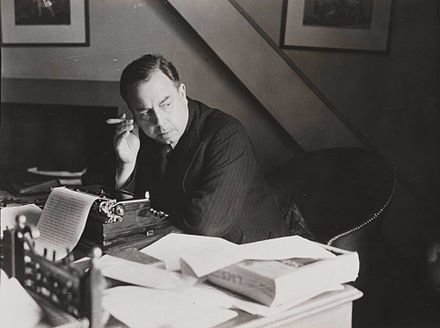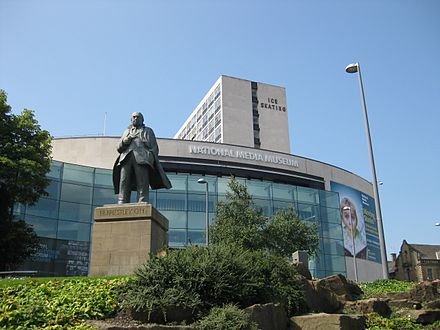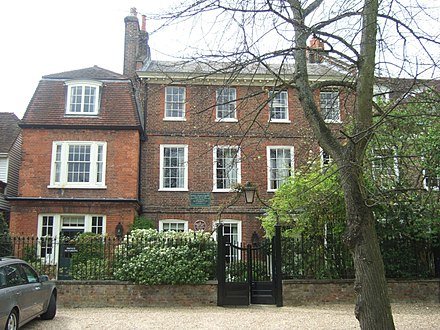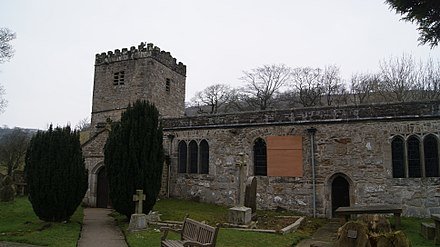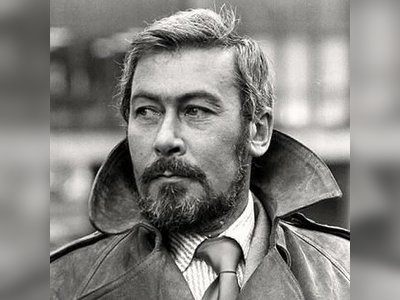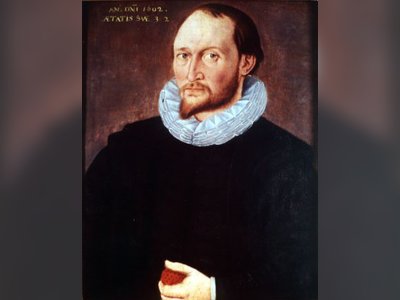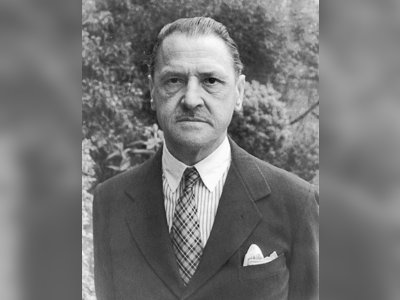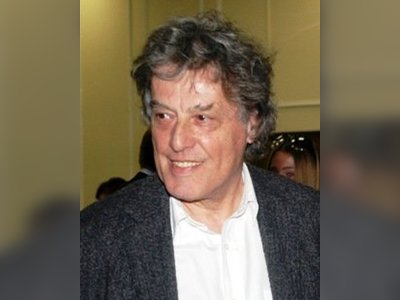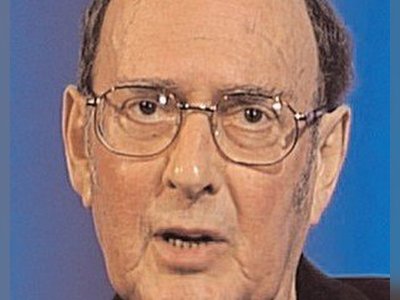British Heritage
Remember, Cherish, Learn.
beta
J. B. Priestley
A Notable Contributor to British Heritage.
John Boynton Priestley, known as J. B. Priestley, was a multifaceted English novelist, playwright, screenwriter, broadcaster, and social commentator. Born on September 13, 1894, in the suburb of Manningham, Bradford, his Yorkshire background played a significant role in shaping his literary works. Priestley's profound contributions to British heritage encompass a wide array of literary genres and themes, leaving a lasting legacy in literature, theatre, and the social and political landscape of the United Kingdom.
Growing up in a respectable suburb of Bradford, Priestley displayed early literary talent, and at the age of 16, he left Belle Vue Grammar School to work as a junior clerk at a wool firm. During this time, he began writing articles for local and London newspapers, setting the stage for his future career as a writer.
When World War I erupted, Priestley enlisted in the British army and served in the Duke of Wellington's Regiment. He experienced the horrors of war and suffered severe injuries, but the experience would later influence his writing. After the war, he received a university education at Trinity Hall, Cambridge, and by the age of 30, he had established himself as a respected essayist and critic.
Priestley's first major literary success came with his novel "The Good Companions" (1929), which gained him widespread recognition and earned the prestigious James Tait Black Memorial Prize for fiction. Subsequently, he further solidified his reputation as a successful novelist with works like "Angel Pavement" (1930). However, Priestley's talent extended beyond fiction, and he emerged as a prominent playwright, captivating audiences in the West End with plays like "Dangerous Corner" (1932) and the renowned "An Inspector Calls" (1945).
During World War II, Priestley became a significant voice on the BBC, where his broadcasts garnered millions of listeners and boosted civilian morale during the Battle of Britain. As a man of left-wing beliefs, he was not afraid to express his political opinions, which sometimes brought him into conflict with the government. His talks influenced the political climate of the time, contributing to the Labour Party's victory in the 1945 general election and the development of the welfare state.
Apart from his fictional works and plays, Priestley made significant contributions to the study of literature with his 500-page survey titled "Literature and Western Man" (1960). He also delved into the intriguing realm of time theory, publishing an extended essay called "Man and Time" (1964), where he explored various theories and beliefs about time, including the phenomenon of precognitive dreaming.
J. B. Priestley's legacy spans across different realms. He was an avid lover of classical music, and his passion for chamber music is evident in some of his works. As a strong supporter of the arts, he played a vital role in fundraising for the London Philharmonic Orchestra and even collaborated on an opera libretto.
Priestley's personal life was marked by three marriages and numerous affairs, including a notable relationship with actress Peggy Ashcroft. He passed away on August 14, 1984, and his ashes were buried in Hubberholme churchyard in Yorkshire.
J. B. Priestley's literary achievements, social commentaries, and contributions to British heritage have left an indelible mark on the cultural landscape of the United Kingdom. From his early works in fiction to his influential plays and thought-provoking essays on time theory, Priestley's creative legacy continues to resonate with readers, theatre-goers, and scholars alike. His multidimensional talent, coupled with his political activism, ensures his enduring place as a significant figure in British literature and history.
Early Life and Literary Beginnings
Growing up in a respectable suburb of Bradford, Priestley displayed early literary talent, and at the age of 16, he left Belle Vue Grammar School to work as a junior clerk at a wool firm. During this time, he began writing articles for local and London newspapers, setting the stage for his future career as a writer.
World War I and Post-Military Life
When World War I erupted, Priestley enlisted in the British army and served in the Duke of Wellington's Regiment. He experienced the horrors of war and suffered severe injuries, but the experience would later influence his writing. After the war, he received a university education at Trinity Hall, Cambridge, and by the age of 30, he had established himself as a respected essayist and critic.
Major Literary Success and Contributions
Priestley's first major literary success came with his novel "The Good Companions" (1929), which gained him widespread recognition and earned the prestigious James Tait Black Memorial Prize for fiction. Subsequently, he further solidified his reputation as a successful novelist with works like "Angel Pavement" (1930). However, Priestley's talent extended beyond fiction, and he emerged as a prominent playwright, captivating audiences in the West End with plays like "Dangerous Corner" (1932) and the renowned "An Inspector Calls" (1945).
Social and Political Commentary
During World War II, Priestley became a significant voice on the BBC, where his broadcasts garnered millions of listeners and boosted civilian morale during the Battle of Britain. As a man of left-wing beliefs, he was not afraid to express his political opinions, which sometimes brought him into conflict with the government. His talks influenced the political climate of the time, contributing to the Labour Party's victory in the 1945 general election and the development of the welfare state.
Contributions to Literature and Time Theory
Apart from his fictional works and plays, Priestley made significant contributions to the study of literature with his 500-page survey titled "Literature and Western Man" (1960). He also delved into the intriguing realm of time theory, publishing an extended essay called "Man and Time" (1964), where he explored various theories and beliefs about time, including the phenomenon of precognitive dreaming.
Legacy and Personal Life
J. B. Priestley's legacy spans across different realms. He was an avid lover of classical music, and his passion for chamber music is evident in some of his works. As a strong supporter of the arts, he played a vital role in fundraising for the London Philharmonic Orchestra and even collaborated on an opera libretto.
Priestley's personal life was marked by three marriages and numerous affairs, including a notable relationship with actress Peggy Ashcroft. He passed away on August 14, 1984, and his ashes were buried in Hubberholme churchyard in Yorkshire.
Conclusion
J. B. Priestley's literary achievements, social commentaries, and contributions to British heritage have left an indelible mark on the cultural landscape of the United Kingdom. From his early works in fiction to his influential plays and thought-provoking essays on time theory, Priestley's creative legacy continues to resonate with readers, theatre-goers, and scholars alike. His multidimensional talent, coupled with his political activism, ensures his enduring place as a significant figure in British literature and history.
- J. B. Priestleyen.wikipedia.org
